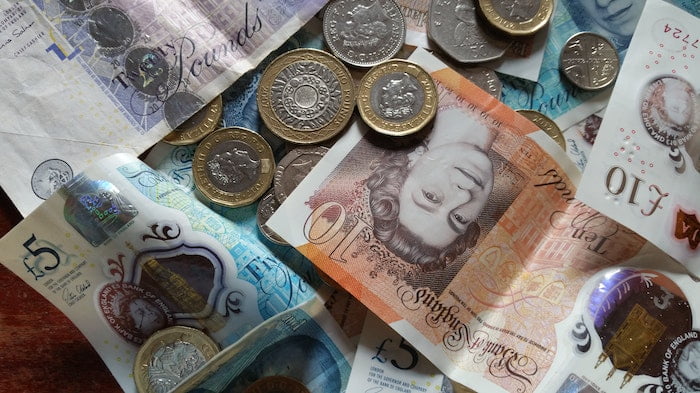Drug and Alcohol Rehab in Paignton
If you or someone that you know is struggling with an addiction to drugs or alcohol in Paignton or Torbay, it is important to understand that thousands of people are in the same boat as you.
Unfortunately, millions of people across the world suffer from addiction issues, and there are currently thousands of people across Paignton and Torbay who suffer from addictions to prescription drugs, alcohol and other illegal drugs [1].
Alcohol plays a really important part in the economy across Paignton and Torbay, due to the nightlife, tourism and leisure industry in the area [1].
However, it is also important to acknowledge that whilst this is useful to the economy, alcohol consumption and abuse also plays a large role in local issues across the economy, healthcare and other local services [1].
Unfortunately, thousands of people across Torbay and Paignton suffer from alcohol abuse and regularly abuse alcohol.
- Torbay has higher than average rates when it comes to alcohol related deaths, and this is the case for both men and women [1]. Unfortunately, the same can be said for alcohol related crime across the region and area [1].
- Lots of research has been done by the Torbay Health and and Wellbeing Board, which has found that whilst alcohol abuse rates in Torbay and Paignton are similar to that of the national average, the outlook on health in Torbay and Paignton is significantly worse than the national average [1].
- This is particularly true when it comes to crime and domestic abuse in Paignton and the rest of Torbay. Unfortunately, it is estimated that only 40% of all domestic abuse incidents are actually reported to the police in Paignton or Torbay [1].
- Torbay also has the highest rate of domestic violence, assault and sexual assault across the whole of the Devon and Cornwall Constabulary, which is closely followed by places such as Plymouth [1].
- Previous studies have found that alcohol was a significant factor in almost 60% of all domestic violence reported to the police across Torbay and Paignton [1].
What is Alcohol Addiction?

An alcohol addiction is when an individual frequently drinks more alcohol than the recommended amounts, and they do so frequently enough that their tolerance to the addictive substance increases with the more alcohol they consume.
When they do so, not only will their tolerance to the addictive substance rise, but their reliance and dependence on the addictive substance will, too. Overtime, this means that their body will become dependent on the addictive substance and will crave the substance on a frequent basis.
Unfortunately, the more they consume the more dependent the addictive substance they become.
This means that they have to consume the drug to feel ‘normal’ and to get the same effects that they had experienced originally from consuming a lesser amount.
This means that their body is now dependent on the substance to function and their tolerance has increased to unsafe and dangerous levels [2].
Unfortunately, some substances are both physically and mentally addictive. This means that your body will crave the addictive substance just as much as your mind does, too. This means that in order to recover, you will have to undergo a medical detox.
Anyone who is physically addicted to a substance will have to experience withdrawal symptoms before they can complete their medical detox. Unfortunately, these withdrawal symptoms can be very unpleasant and difficult to overcome.
However, it is also the most rewarding part of the recovery process, as once this is complete you will no longer be reliant on the addictive substance.
If you think that you or someone that you know or love is addicted to a substance, then you should look out for some of the following warning signs.
- Social isolation
- Feeling agitated
- Shaking
- Continuing drink despite being aware of just how bad it is for you
- An increase in tolerance
- Seizures
- Struggling to stop drinking
- Craving alcohol
- Feeling angry, frustrated and irritated frequently
- Struggling to sleep
- Experiencing withdrawal symptoms when you stop consuming the addictive substance for a short period of time
- Sweating
- Struggling to maintain basic hygiene standards
- Struggling to hold down a job
- Struggling to turn up for work or school on time
- Frequently arguing with friends or family members
If you read any of the above symptoms and recognise that you or someone you love is struggling with a number of them, then speak to a member of our team at Rehab Recovery for help and support.
What is Drug and Alcohol Rehab?

Rehab is short for rehabilitation, and is a place people who are suffering go to for help and support. This could be from an illness of any sort, including addiction issues.
During rehab, individuals are offered a range of treatment and therapy. This could include counselling, physiotherapy or a physical detox. At drug and alcohol rehab in Paignton, individuals are offered a detox withdrawal alongside a range of other therapy techniques.
There are different stages to drug and alcohol rehab in Paignton, which are listed and explained further below.
1. Admission
The first stage of any drug and alcohol rehab journey is the admissions stage. This is where you first reach out to a rehab centre, local to you, to see whether you would be offered a place.
This will mean that the doctors at the rehab centre will ask you a number of different questions. This includes things such as how long you have been addicted to the substance for, how severe your addiction is, what substances you are addicted to and whether you have received any therapy previously.
Once the doctors and counsellors have established how severe your addiction is, you will hopefully be admitted into your chosen rehab centre.
2. Detoxification and withdrawal
The next stage of the process only applies to those who are physically addicted to a substance. This includes alcohol and any type of opioid.
A detox and withdrawal is when you stop consuming the drug gradually, so that you are able to stop altogether. This should always happen in a safe and controlled environment, such as a drug and alcohol rehab centre.
Unfortunately, your detox will involve some rather unpleasant withdrawal symptoms, which includes being sick, feeling anxious, shaking, sweating and hallucinating.
3. Therapy treatment
The next stage of the rehab process is therapy treatment. Each rehab centre will offer a range of different therapy techniques, such as cognitive behavioural therapy, group therapy, individual therapy and family therapy.
4. Aftercare
The second to last stage of the rehab process is aftercare. This starts before you even leave the rehab centre, as your doctors and councillors will work with you to create your very own aftercare and support plan.
This plan will ensure that you stay on track with your recovery by avoiding any triggers or cravings. Unfortunately, lots of people who recover from their addiction issues go on to relapse at a later date. This could happen days, weeks or even sometimes months after recovering, and means that you have to enter a rehab programme all over again.
You should also make a lot of effort to attend self help groups, such as Alcoholics Anonymous, Narcotics Anonymous and SMART meetings.
What is the Cost of Attending Drug and Alcohol Rehab in Paignton?

Unfortunately, the cost of attending drug and alcohol rehab in Paignton has risen over the past few decades. It has risen so much so that it is now unaffordable for many people who suffer from addiction issues.
Whilst the NHS does offer some funded rehab treatment, it is very limited. It is due to a lack of funding across the NHS as a whole. If you opt for NHS funded rehab treatment, you will most likely have to wait a number of months in order to receive treatment.
If this simply isn’t an option for you, then you will have to pay for private drug and alcohol rehab in Paignton. The cost of private rehab treatment depends on a few different things, including how long you stay and whether you opt for a shared or private room.
Most people who stay in rehab for around 10 days end up paying anything between £3,000 and £6,000 for a shared or private room. However, most people end up staying around 28 days, which could set you back around £12,000.
If you need a detox, but cannot afford to attend private drug and alcohol rehab in Paignton, then you might want to consider a home detox. This is only available for those with a mild addiction, who are able to detox and recover in the comfort of their own home.
By opting for a home detox, you will receive medication in the post and any encouragement you might need over the phone. This costs a lot less than rehab treatment, coming in at around £1,500.
Inpatient or Outpatient Rehab Treatment in Paignton

When you first enquire about drug and alcohol rehab in Paignton, you will have to choose between inpatient and outpatient rehab treatment.
If you are considering attending rehab, then it is important that you understand the key differences between the two types of rehab treatment programmes. With inpatient rehab treatment, you will have to move into a rehab facility temporarily. With outpatient treatment, you get to remain living in your own home and get to visit rehab centres for your treatment.
Inpatient drug and alcohol rehab in Paignton is a great option for anyone who suffers from a severe addiction, who needs a lot of support and help from specialists in order to recover. You will be monitored around the clock throughout your detox, and will also benefit from the company of other people who are all going through the same things as yourself.
You will end up staying in inpatient rehab for a number of weeks, until you successfully detox and receive your therapy. Inpatient drug and alcohol rehab in Paignton is the best option for anyone who suffers from a long term, severe addiction.
Outpatient drug and alcohol rehab in Paignton is a better option for anyone with a mild addiction, who is capable and motivated enough to recover in the comfort of their own home.
You might get the chance to detox at home, and will have to visit rehab centres on a weekly basis to receive your therapy treatment. You will have to stay focussed and motivated during your outpatient treatment, as it will be difficult to ignore and overcome triggers and cravings.
Outpatient therapy treatment is the best option for anyone who still has commitments at home, such as looking after children or attending work.
Therapy for Alcohol and Drug Addiction

Most people who suffer from addiction issues have never tried therapy before until they attend drug and alcohol rehab.
Some of the most common types of therapy techniques used throughout rehab centres in Paignton are listed below for you.
- Individual therapy
- Holistic therapy
- Twelve Step Facilitation Therapy (TSF)
- Cognitive behavioural therapy (CBT)
- Dialectical behavioural therapy
- Motivational interviewing
- Family therapy
- Co-dependency therapy
- Group therapy with other sufferers
- Brief interventions
Get in Touch with Rehab Recovery

If you or someone you know suffers from an addiction to drugs or alcohol, then get them the help that they need.
Start by calling our team at Rehab Recovery on 0800 088 66 86.
References
[1] https://www.torbay.gov.uk/media/7073/alcoholstrategy.pdf
[2] https://www.niaaa.nih.gov/publications/cycle-alcohol-addiction


